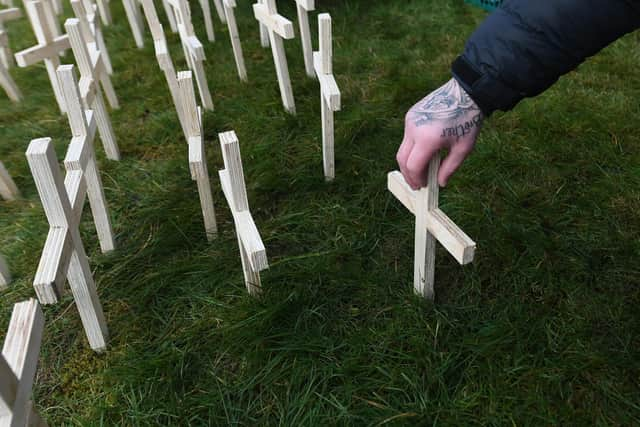We need more than fix rooms to fix the drug deaths emergency - Susan Dalgety
and live on Freeview channel 276
No child grows up dreaming of becoming addicted to heroin, or benzos, or coke, or all three. But the chances of a child living in one of our city’s poorer areas becoming a drug addict and dying prematurely are much higher than for a youngster growing up in our leafy suburbs.
People living in the most deprived parts of our city are 15 times more likely to die from drug misuse than those in the least deprived areas. A child’s postcode really does have an impact on her life chances.
Advertisement
Hide AdAdvertisement
Hide AdScotland’s terrible record on drug deaths – we have the highest in Europe – has focused minds and some resources on tackling drug misuse. Angela Constance, a West Lothian MSP, is also the Minister for Drugs Policy, with the challenging job of reducing drug deaths.
She was appointed last year to lead a “national mission” to tackle the problem, and there is a plethora of groups and task forces, even a ‘national collaborative’ to help her.
Edinburgh City Council, rightly, has a key role to play. As council leader Cammy Day says, “109 deaths is 109 too many and anything we can do to try and prevent that we absolutely should.”
Councillors heard last week about Edinburgh Alcohol and Drugs Partnership’s progress on a feasibility study to set up an Overdose Prevention Centre (fix room) in the city. These are safe spaces where people can take illegal drugs under medical supervision. They have operated across Europe for 30 years, from Oslo to Athens.
Advertisement
Hide AdAdvertisement
Hide AdDo fix rooms work? Perhaps. The Scottish Drugs Forum says there is some evidence that, where coverage is adequate, they may contribute to reducing drug-related deaths at a city level.


Are they an easy fix? Definitely not. There are legal hurdles to overcome – responsibility for drugs policy lies with Westminster and at the moment the UK government is against the idea. Communities may not be so keen to have one on their doorstep either. As Councillor Mandy Watt pointed out during last week’s discussions, there are fears that fix rooms will become “a magnet for drug dealers”.
On their own, fix rooms will not solve the problem. Scotland needs more residential rehabilitation beds so that people can start their long, slow recovery with 24-hour support. Campaigners argue that all personal drug use should be decriminalised, as it is in Portugal and elsewhere, with police already given powers to treat personal possession of Class As with a fine, rather than prosecution, in Scotland.
Last year, the First Minister promised £250 million over the course of this parliament to reduce drug deaths. But the Scottish Government has just taken £400 million from frontline NHS services to pay for staff pay rises.
Advertisement
Hide AdAdvertisement
Hide AdAs the economy teeters on the verge of recession, more cuts are likely. But if we are serious about ending the scandal of drug deaths – including establishing fix rooms in Edinburgh and elsewhere – then that £250 million investment must be protected.